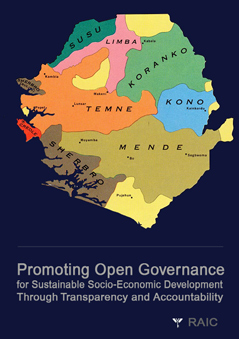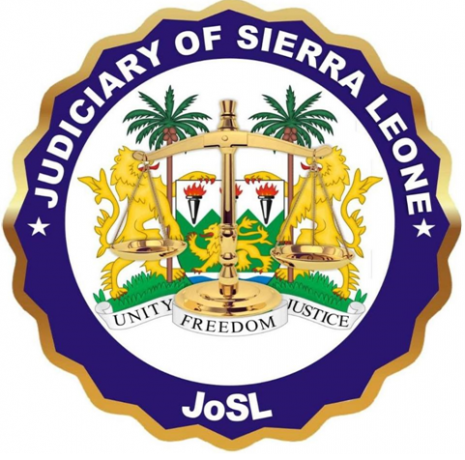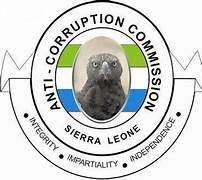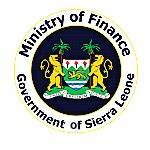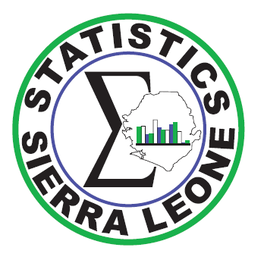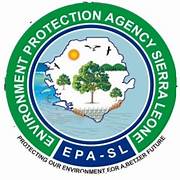Dr. Ibrahim Seaga Shaw, the Chairman and Information Commissioner of Sierra Leone’s Right to Access Information Commission (RAIC) has highlighted gains made by the country over the years in digitalizing access to information in Sierra Leone, especially since he assumed the position in 2018. Dr Shaw was speaking at a joint side event at the UN High-Level Political Forum in New York on Tuesday 16th July, 2024 organized by the Ministry of Planning and Economic Development of Sierra Leone, the Right to Access Information Commission of Sierra Leone, and partners, including UNESCO, and hosted by the Sierra Leone Permanent Mission at the UN, on the topic “The Role of Digitalization in the Implementation of Public Access to Information as an Accelerator of the Sustainable Development Goals (SDGs)”.
Dr. Ibrahim Seaga Shaw started by underscoring that the Right to Access Information Commission of Sierra Leone puts value on access to information, saying, "At RAIC, we don't see access to information only as an end in itself, but as a means to many ends", adding that the Right to Access Information Act 2013 and Right to Access Information Regulation 2022 empower everybody to access information and that digital platforms enable and complement such right to access information.
Speaking on the theme of the event, the Sierra Leone Information Commissioner said, in the context of the SDGs, public access to information should be seen as very important because it is an enabler of all the other SDGs.
"If access to information should be an enabler, then digitalization is an enabler of the enabler. That is how we see it in Sierra Leone," he stated.
Highlighting recent gains made by the country in digitalizing access to information, Dr. Shaw informed participants at the side event that the country now has digital platforms established to expedite and modernise access to information, something he said is a novelty in the country's public information spectrum.
"We have provided digital access to information platforms that can be used to access information. We created four platforms that handle information request, acknowledgement of information request, response to information request, and making a complaint to the Right to Access Information Commission when access to information is rejected or denied by a public authority," he disclosed.
He said, because the development is new to the country, not everyone is used to such digital infrastructure, "So, we are embarking on intensive popularization to make sure that people are fully aware of the digital platforms".
"Though it is a novelty in the country, but for now, the current digital platforms are not in real-time as you have to download, complete, and send them to the relevant public authority. However, we have approached a tech company to enable us make the platforms operate real-time where people and institutions need not go through the rigour of downloading them. The tech company is embedding emails of public authorities in the forms so that no sooner an information request is sent to a public authority in real time, we automatically receive a copy," Dr. Shaw narrated.
He further said that he and his team at the Information Commission are pushing hard to ensure that public authorities proactively disclose information on their websites and other digital platforms. "We encourage them to do so to defeat misinformation, disinformation, and fake news," he added.
Also mentioning key development, Dr. Shaw informed the high-powered participants that Sierra Leone has an open data centre and an open data portal serving as a hub for all government information.
On challenges, he said the digital divide is a very big problem. "In Sierra Leone, for instance, you have some people who would want to use the digital access to information platforms we have created, but because of limited access to internet, it would be challenging to do so," he noted.
Responding to questions on what Sierra Leone is doing to bridge the digital divide and empowering more people to be digitally conscious, Commissioner Seaga Shaw said the Government of Sierra Leone has introduced digital literacy in schools, while citing the Universal Development Fund, through the National Telecommunications Authority, which recently organized some activities in the regions where underprivileged farmers and other locals were given smartphones. "So, there are conscious efforts being made by sectors in Sierra Leone to increase access to these digital tools. We still have a long way to go, but I will say work is in progress," he explained.
He added that the transitioning from a culture of secrecy to a culture of openness is also a major challenge in Sierra Leone, particularly with the civil and public service. He however said that the Information Commission has worked with a consultant hired by the Human Resource Management Office to review the civil service code to ensure that it is in harmony with access to information laws.
"Immediately the reviewed Bills goes to parliament and is approved, we will be working with the Public Service Commission to make sure the issue of not timely disclosing information on the basis of oath of secrecy by civil and public servants is addressed.
The RAIC chief recommended for more digital literacy, saying there is a need for more digital tools to make sure that people who are disadvantaged are not excluded.
In his welcoming remark, His Excellency Ambassador Michael Imran Kanu, the Ambassador and Permanent Representative of Sierra Leone to the United Nations, thanked those who partnered with Sierra Leone in convening the meeting, acknowledging the role of UNESCO, the Open Government Partnership, the United Kingdom, and the National Institute for Transparency, Information and Personal Data Protection of Mexico in making the side event a success.
"The role of digitalization in the implementation of public access to information is pivotal in accelerating the achievement of the SDGs. Digital technology enhances transparency, accountability, and citizens' engagement by making information easier and more accessible. This fosters informed decision-making and empowers communities, leading to more effective and inclusive governance. By bridging the information gap, digitalization ensures that no one is left behind, thereby driving progress across all SDGs from quality education and healthy to sustainable cities and climate actions," the senior diplomat narrated.
Ambassador Kanu said the integration of digital solutions in public access to information does not only support growth directly related to governance, but also underpins the broader objectives of sustainable development, creating a more resilient and equitable global society.
Making a statement, Hon Kenyeh Barlay, the Minister of Planning and Economic Development of Sierra Leone expressed her profound thanks and appreciation to participants of the side event co-hosted by the Permanent Mission of Sierra Leone and UNESCO in partnership with the governments of the United Kingdom and Mexico, while she singled out UNESCO and the governments of the United Kingdom and Mexico for co-sponsoring this event.
"Our gathering here today is to reflect on the critical role of universal access to information in enhancing governance and sustainable development and how digitalization could accelerate access to information," she said.
She emphasized that the Government of Sierra Leone considers access to information essential for good governance and a critical enabler of the SDGs.
"Our country has made tremendous progress towards universal access to information, recording a considerable increase in freedom of information and increase in proactive disclosure of information among public institutions since 2018," adding that, "On the legislative and regulatory front, the country, in 2020, historically repealed the Criminal and Seditious Libel law, while asserting that press freedom has significantly improved."
She also cited the RAIC's digital access to information platforms, which she hoped would be a game changer in accessing public information.
Dr. Tawfik Jelassi is the UNESCO Assistant Director General for Information and Communication who oversees UNESCO's program on building inclusive knowledge society, driving digital transformation, leveraging ICT, and promoting freedom of expression.
Dr. Jelassi said, globally, there has been a dramatic improvement in right to access information from only 14 countries in 1990 that had access to information laws to 140 countries in 2024 which have embraced the power of transparency through legislations that guarantee access to information. "This incredible expansion mirrors the rapid digitalization across the world. Information once locked around physical barriers now flows freely through the vast interconnected web of the internet. It has empowered people of all ages to scrutinize the institutions that govern them," he expressed.
He encouraged that member countries should ensure that access to information laws translate to actions and impact on the ground and are implemented in an inclusive way with oversight bodies in order for such laws to have a lasting effect.
The UNESCO senior staff added that a recent UNESCO annual monitoring survey shows that 40 countries used digital tools to provide information to the public.
He said rolling out digitalization to access information requires strong internet infrastructure and digital skills to ensure that everyone, especially the vulnerable population, can benefit.
During the Questions and Answers session, Sierra Leone's Development Minister expressed challenges with libraries in the country, emphasizing the need for libraries across the country to go digital. She also mentioned challenges around internet data and access to electricity, which she said can impact the access to information process.
She called for more partnerships from all SDGs sectors to make digital access to information work.
Other panel speakers at the side event were Mr Kanbar Hussein Bor, Head of Democratic Governance and Media Freedom department at the Foreign, Commonwealth and Development Office, UK; Ms Blanca Ibarra Cadena, Information Commissioner of Mexico, and Mr Blair Glencorse, Co-CEO of Accountability Lab and Co-Chair of the Open Government Partnership Steering Committee(USA).
These speakers mentioned digital divide; lack of Internet connectivity; proliferation of fake news and its impact on people; and rigid bureaucracy as the greatest risks to accessing credible information.
One thing that came out clearly from the UN high-level side event was that digitalization is essential in making public information more accessible in making informed decisions and combating fake news.





